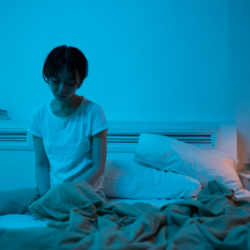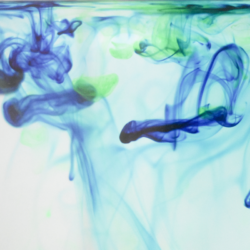When we speak of an obsessive disorder in the sense of a disease, we describe a behavior , characterized by the irrepressible need to constantly repeat a ritual , often bizarre (compulsion). Professional, family and social life can be seriously threatened. Obsessive thoughts are absurd thoughts. The person who suffers from them feels them as such, but fails to get rid of them despite his efforts. Obsessive-compulsive disorder is far from rare, although little is said about it, because most of those who suffer from it tend, if they can, to hide their disease. Its prevalence, that is to say the proportion of people who suffer from it at some point in their life, is estimated at 2 to 3% of the population.
What are the different types of obsessions?
Obsessions can indeed take many forms. The most frequent are among others the fear of contamination and pathological doubt , the mania for order and symmetry , perfectionism , violent impulse phobias , sexual , religious or musical obsessions (repetitive songs). However, 60% of patients present with mixed forms, combining several of these symptoms. Some patients present more specific obsessions, which are not part of the obsessive disorder stricto sensu : dysmorphophobia, some eating disorders , hypochondria, impulsive behaviors (pathological gambler, arsonist, etc.), etc.
The most frequent compulsions are the verification rites . We also observe rites of washing , cleaning , symmetrical storage , accumulation and collection , arithmomania , repetition or avoidance . The diagnosis of compulsions can also be discussed in the presence of trichotillomania (repeated pulling out of one’s own hair resulting in alopecia), Gilles de la Tourette syndrome, tics.
Certain patients present in particular symptoms which appear “complementary”: obsession with contamination associated with cleaning rites, aggressive thoughts associated with verification rites. The themes of symmetry and order are often associated with ideal sexual or religious content.
OCD in children
One to 3% of children and adolescents suffer from OCD and a third of adults with OCD started their disorders in childhood .
While the semiology of childhood OCD resembles that of adult OCD, certain traits are more specific to children :
- He is most often unaware that he is sick and does not tell those around him about it.
- His obsessions and compulsions are multiple and very fluctuating.
- His family circle is often involved in his rituals.
- He exhibits temper tantrums and aggression when his rituals are thwarted.
Are There Any Treatments For Obsessive Compulsive Disorder?
Obsessive-compulsive disorder is classically considered a neuropsychiatric disease . To date, it is the cognitive therapy and behavioral (CBT) that showed the greatest therapeutic effect and are therefore recommended by health authorities. For the most severe and resistant cases, research protocols using deep brain stimulationcan be offered. This technique consists of stimulating areas of the brain involved in the neurophysiology of OCD using electrodes. Although these treatments are effective, a significant percentage of people remain resistant and suffer a repercussion which has major functional consequences. It is therefore necessary to develop complementary approaches and new therapies .
Selective serotonin reuptake inhibitor psychoanaleptics have atropine and antidepressant effects, the effectiveness of which has been scientifically proven on numerous occasions in obsessive-compulsive disorder :
Antidepressant, the crocin of Saffron would inhibit the reuptake of dopamine and norepinephrine. The Safranal , meanwhile, that of serotonin. The major and multi-target antidepressant activity on various Rhodiola receptors and neurotransmitters was observed by the inhibition of monoamine oxidase A – MAOA effect A.
St. John’s Wort is an antidepressant by inhibiting serotonin reuptake (original action on certain ion channels).
The gramine is indole alkaloid having a molecular structure close to that of serotonin and dopamine less. The gentisine and other xanthones are inhibitors of MAO.
Griffonia seeds contain 5-HTP (5-hydroxy-tryptophan) which is an immediate precursor of serotonin. Griffonia increases the available stock of serotonin in the brain by providing the precursor (mode of action different from that of St. John’s Wort or SRI which prevents the reuptake of serotonin in the synaptic cleft).
Antidepressant, it improves mood and cognitive performance by modulating muscarinic and nicotinic receptors.
Medical bibliographic sources and clinical trials :
- Darbinyan V, Aslanyan G, Amroyan E, GabrielyanE, Malmström C, Panossian A. Clinical Trial of Rhodiola Rosea L. Extract SHR-5 in the Treatment of Mild to Moderate Depression. North J Psychiatry. 2007
- Linde K, Ramirez G, Mulrow CD, Pauls A, Weidenhammer W, Melchart D – St John’s wort for depression – an overview and meta-analysis of randomized clinical trials. – BMJ 1996
- Lecrubier Y., Clerc G., Didi R., Kieser M. Efficacy of St. John’s Wort Extract WS 5570 in major depression: A double-blind, placebo-controlled trial. Am J Psychiatry 2002
- Laakmann G, Schüle C, Baghai T, Kieser M – St John’s wort in mild to moderate depression: the relevance of hyperforin for the clinical efficacy – Pharmacopsychiatry 1998
- Whiskey E, Werneke U, Taylor D – a systematic review and meta-analysis of Hypericum perforatum in depression: a comprehensive clinical review – Intern Clin Psychopharmacology 2001
- Linde K., Berner M., Egger M., and Mulrow C. – St John’s wort for depression: Meta-analysis of randomized controlled trials – Br. J. Psychiatry, February 1, 2005
- Szegedi A, Kohnen R, Dienel A and Kieser M; acute treatment of moderate to severe depression with hypericum extract WS 5570; randomized controlled double-blind non-inferiority trial versus paroxetine
- Haraguchi H, Tanaka Y, Kabbash A, Fujioka T, Ishizu T, Yagi A. Monoamine oxidase inhibitors from Gentiana lutea. Phytochemistry. 2004
- Pathak Suresh Kumar, Tahilani Praveen, Jain, NishiPrakash, Banweer Jitendra. INTERNATIONAL JOURNAL OF PHARMACY & LIFE SCIENCES A review on Griffonia simplicifollia – an ideal herbal disorder anti-depressant. July, 2010
- Kennedy DO, Scholey AB, Tildesley NT, Perry EK, Wesnes KA. Modulation of mood and cognitive performance following acute administration of Melissa officinalis (lemon balm). Pharmacol Biochem Behav. 2002





